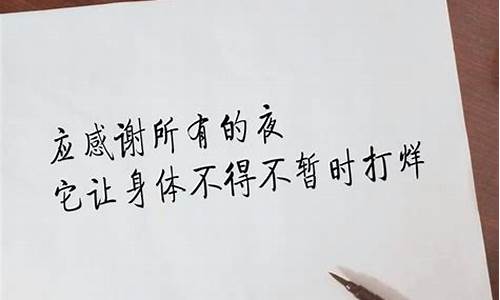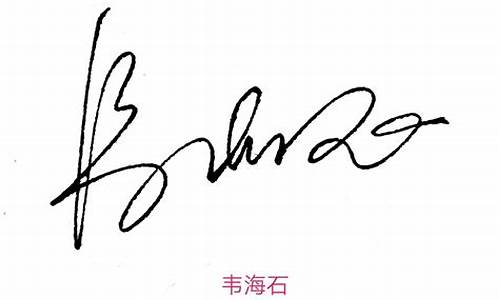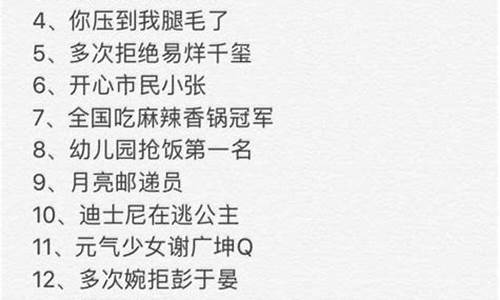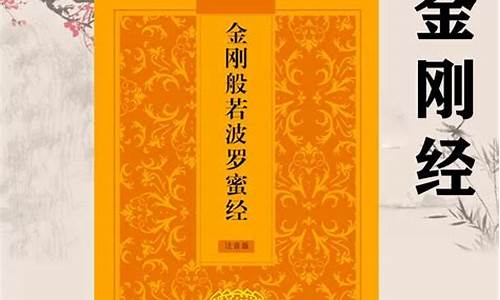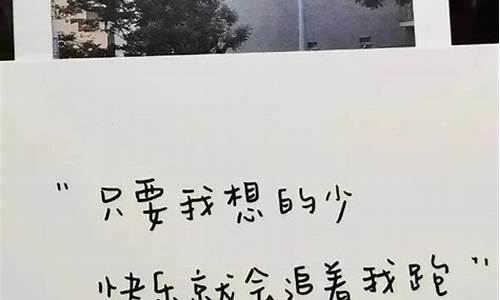您现在的位置是: 首页 > 经典语录 经典语录
初中英语单句改错_初中英语句子改错
tamoadmin 2024-09-07 人已围观
简介1.10道英语改错题 急!!2.英语改错3.2016玉林初中英语改错题专练4.英语短文改错(共10处错误)5.初中英语改错翻译句型:省略法6.初中英语句子改写!!!用英文改,要准些哦~~好的加分!!!!! 1. i hope to receive a letter from you考点直击 1.不定冠词a与an的用法 2.定冠词the的用法 3."零"冠词 4.基数词的用法 5.序数词的用法 名师
1.10道英语改错题 急!!
2.英语改错
3.2016玉林初中英语改错题专练
4.英语短文改错(共10处错误)
5.初中英语改错翻译句型:省略法
6.初中英语句子改写!!!用英文改,要准些哦~~好的加分!!!!! 1. i hope to receive a letter from you

考点直击
1.不定冠词a与an的用法
2.定冠词the的用法
3."零"冠词
4.基数词的用法
5.序数词的用法
名师点睛
一. 冠词的用法
冠词是虚词,放在名词之前,用来说明名词指的人或事物。冠词有两种。
A(an)叫不定冠词,the叫定冠词。A用在辅音之前,an用在元音之前。
1. 不定冠词的用法
(1) a和an均用在单数名词之前,表示某一类人或事物。例如:
John is a student.
Mary is an English teacher.
(2) 指某一类人或事物中的任何一个。例如:
A steel worker makes steel.
Pass me an le, please.
(3) 指某人或某物,但不具体说明何人或何物。例如:
A student wants to see you.
A girl is waiting for you outside.
(4) 表示“每一”的意思,相当于every。例如:
Take the medicine three times a day.
They go to see their parents once a week.
2. 定冠词用法
(1) 特指某(些)人或某(些)事物。例如:
The book on the desk is an English dictionary.
Beijing is the capital of China.
(2) 指说话人和听话人都熟悉的人或事物。例如:
Open the door, please.
Jack is in the library.
(3) 上文提到过的人或事物。例如:
Yesterday John’s father bought him a new bike. The bike cost him 200 yuan.
(4) 表示世界上独一无二的事物。例如:
The sun rises in the east and sets in the west.
(5) 用在序数词和形容词最高级之前。例如:
Shanghai is the biggest city in China.
January is the first month of the year.
(6) 用在某些形容词之前,表示某一类人或事物。例如:
The nurse is kind to the sick.
We should take good care of the old.
(7) 用在某些专有名词之前和某些习惯用语中。例如:
the Great Wall, the Summer palace, in the morning, in the open air等。
(8) 用在姓氏复数之前,表示“某某一家人”,“某某夫妇”。例如:
the Browns, the whites等。
3. 不用冠词的情况
(1) 某些专有名词,抽象名词和物质名词前一般不用冠词。例如:
China, Canada, Japanese, glass, water, love等。
(2) 名词前已有作定语用的this, that, my, your, whose, some, any, no, each, every等代词时,不用冠词。例如:
That is my cap.
I he some questions.
Go down this street.
(3) 复数名词表示一类人或事物时,不用冠词。
They are workers.
We are students.
(4) 称呼语前不用冠词,表示头衔和职务的名词前也不加冠词。例如:
I don’t feel well today, Mother.
Bush was made president of the U.S.
(5) 三餐饭的名称前,球类活动,学科和节目名词前,常不用冠词。例如:
I he lunch at home.
He often plays football after class.
We he English and maths every day.
(6) 在某些固定词组里,名词之前常不用冠词。例如:
By air, at night, at home, go to bed, go to school, on foot, from morning till night 等。
二. 数词的用法
数词分基数词和序数词。基数词表示数目,序数词表示顺序。
1. 基数词的用法
(1) 基数词在句中主要用作主语、宾语、定语、表语、同位语,例如:
Thirty of them are Party members.(主语)
--- How many would you like?
--- Three ,please.(作宾语)
The nine boys are from Tianjin.(定语)
Six plus four is ten.(表语)
We four will go with you.(同位语)
(2) 表示一个具体数字时,hundred, thousand, million一律不用复数;在表示一个不确定数字时则用复数。例如:
Our country has a population of 1,300 million people.
There are three thousand students in our school.
After the war, thousands of people became homeless.
Maize is the most important food crop for millions of people in the world.
They arrived in twos and threes.
(3) 表示“……十”的数词的复数形式可用来表示人的岁数或年代,例如:
He is in his early thirties.
He died still in his forties.
This took place in 1930s.
(4) 表示时刻用基数词。例如:
We get up at six.
The workers begin work at eight.
表示“几点过几分”,用介词past,但须在半小时以内。例如:
ten past ten,
a quarter past nine,
half past twelve
表示“几点差几分”用介词to, 但分数须在半小时以上。例如:
twenty to nine,
five to eight,
a quarter to ten
表示“几点几分”还可直接用基数词。例如:
seven fif,
eleven thirty,
nine twenty
2. 序数词的用法
(1)序数词主要用作定语,前面要加定冠词,例如:
The first truck is carrying a foot baskets.
John lives on the fifth floor.
(2)序数词有时前面可加不定冠词来表示“再一”,“又一”这样的意思,例如:
We'll he to do it a second time.
Shall I ask him a third time?
When I sat down,a fourth man rose to speak.
(3)由几个序数词和基数词在拼写时不对应,很容易写错,应特别注意。它们是:one---first, two---second, three---third, five---fifth, eight---eighth, nine---ninth, twelve---twelfth。
(4)表示年,月,日时, 年用基数词表示,日用序数词表示。例如:
1949年十月一日读作: October (the) first, nine sixty
2004年九月十日读作:September (the) tenth, two thousand and four
(5)表示分数时,分子用基数词表示,分母用序数词表示。分子大于1时,分母加-s。例如:
three fourths,
one second,
two fifths
(6)序数词有时用缩写形式:
first→1st second→2nd
third→3rd fourth→4th
twenty-second→22nd
实例解析
1. (2004年上海市徐汇区中考试题)
About ________ students in our class can describe that place in English.
A. three-fifths B. three-fifth C. third-five D. third-fifths
答案:A。该题考查的是分数的表示法。分子用基数词表示,分母用序数词表示。分子大于1时,分母应加-s,因此应选A。
2. (2004年河北省中考试题)
Nine _______ pounds a week? That’s very good.
A. hundred of B. hundreds of
C. hundreds D. hundred
答案:D。该题考查的是数词的用法。Nine hundred是一个具体的数量,这是数词不能用复数形式,后面也不能加of。所以应选D。
3. (2004年北京市海淀区中考试题)
We often he sports after class, and I like to play _______ basketball.
A. a B. an C. the D. 不填
答案:D。该题考查的是冠词的用法。球类运动之前不加冠词,因此应选D。
4. (2004年江西省中考试题)
This is _______ song I’ve told you about. Isn’t it _______ beautiful one?
A. the; the B. a; a C. the; a D. a; the
答案:C。该题考查的是冠词的用法。第一个空是特指,特指我给你说过的那首歌,第二个空是表示某一个类别。所以应选C。
中考演练
一. .单项填空
1. This morning I had ________ egg and a bottle of milk for my breakfast.
A. an B. a C. the D./
2. ---What’s the matter with you?
---I caught ________ bad cold and had to stay in ________.
A. a;/ B. a; the C. a; a D. the; the
3. ---He you seen _______ pen? I left it here this morning.
---Is it ________ black one? I think I saw it somewhere.
A. a; the B. the; the C. the; a D. a; a
4. _______ sun is shining brightly.
A. A B. An C. The D. /
5. There is _______ “h” in the word hour.
A. a B. the C. an D./
6. Did you enjoy your stay in Xian?
Yes. I had _______ wonderful time.
A. a B. an C. the D. /
7. ______ sun is bigger than _______ earth.
A. A; the B. A; an C. The; an D. The; the
8. There is _______ le and some pears on the table.
A. the B./ C. a D. an
9. Did has _______ cat. It’s very nice.
A. a B. an C. the D./
10. I’m reading _______ novel. It is _______ interesting story.
A. a; an B. a; a C. the; the D. /; an
11. It is said that SARS has killed more than ________ people worldwide.
A. three hundreds B. three hundreds’
C. three hundred’s D. three hundred
12. ---How many workers are there in your factory?
---There are two __________.
A. hundreds B. hundred C. hundred of D. hundreds of
13. ---Which is the smallest number of the four?
---_______________.
A. Two-thirds B. A half C. A quarter D. Three-fourths
14. ---What do you think of a war, Li Ming?
---I’ve no idea. But it’s a fact that _______ people had to lee their hometown during the War on Iraq.
A. three thousands B. thousand of
C. thousands of D. several thousands
15. We all think that the _______ century will bring us more hopes.
A. twenty-first B. twentieth-first
C. twenty-one D. twentieth-one
16. ---Can you write the number eighty-five thousand, six hundred and twenty-six?
---Yes, it is __________.
A. 856620 B. 85626 C. 58662 D. 58626
17. When was the PRC founded? It was founded on _________.
A. July 1, 1921 B. October 1, 1949
C. August 1, 1927 D. May 1, 1922
18. I was 8 years old when my father was 31. This year my father is twice my age. How old am I?
A. 21 B. 22 C. 23 D. 24
19. _______ Chinese are looking for ways to learn English well before Beijing 2008 Olympics.
A. Thousand B. Thousands C. Thousand of D. Thousands of
20. Both of the two rulers are broken. I want to buy a _______one.
A. three B. third C. forth D. /
二. 句子改错:下面各句A, B, C, D中有一处错误,请指出并改正。
1. May is a fifth month of the year.
A B C D
2. The film has been on for half a hour.
A B C D
3. The boys and the girls often play the foot ball in the afternoon.
A B C D
4. It looks rain. Why not take a umbrella with you?
A B C D
5. Li Mei often gives us some good information by the e-mail.
A B C D
6. We’ve planted two hundreds trees in the centre of our city this year.
A B C D
7. Five million of dollars is a lot of money.
A B C D
8. There are thousand of children in the park now.
A B C D
9. By the end of twenty century, the world population had passed six billion.
A B C D
10. Over three fifth of the world’s books and newspapers are written in English.
A B C D
练习答案
一. 1.A 2.A 3.D 4.C 5.C 6.A 7.D 8.D 9.A 10.A11.D 12.B 13.C 14.C 15.A 16.B 17.B 18.C 19.D 20.B
二. 1.B a→the 2.D a→an 3.C 去掉the 4.C a→an 5.D去掉the 6.B two hundreds→two hundred 7.B 去掉of 8.B thousand→thousands 9.B twenty→twentieth 10.A three fifth→three fifths
1.不定冠词a与an的用法
2.定冠词the的用法
3."零"冠词
4.基数词的用法
5.序数词的用法
一. 冠词的用法
冠词是虚词,放在名词之前,用来说明名词指的人或事物。冠词有两种。
A(an)叫不定冠词,the叫定冠词。A用在辅音之前,an用在元音之前。
1. 不定冠词的用法
(1) a和an均用在单数名词之前,表示某一类人或事物。例如:
John is a student.
Mary is an English teacher.
(2) 指某一类人或事物中的任何一个。例如:
A steel worker makes steel.
Pass me an le, please.
(3) 指某人或某物,但不具体说明何人或何物。例如:
A student wants to see you.
A girl is waiting for you outside.
(4) 表示“每一”的意思,相当于every。例如:
Take the medicine three times a day.
They go to see their parents once a week.
2. 定冠词用法
(1) 特指某(些)人或某(些)事物。例如:
The book on the desk is an English dictionary.
Beijing is the capital of China.
(2) 指说话人和听话人都熟悉的人或事物。例如:
Open the door, please.
Jack is in the library.
(3) 上文提到过的人或事物。例如:
Yesterday John’s father bought him a new bike. The bike cost him 200 yuan.
(4) 表示世界上独一无二的事物。例如:
The sun rises in the east and sets in the west.
(5) 用在序数词和形容词最高级之前。例如:
Shanghai is the biggest city in China.
January is the first month of the year.
(6) 用在某些形容词之前,表示某一类人或事物。例如:
The nurse is kind to the sick.
We should take good care of the old.
(7) 用在某些专有名词之前和某些习惯用语中。例如:
the Great Wall, the Summer palace, in the morning, in the open air等。
(8) 用在姓氏复数之前,表示“某某一家人”,“某某夫妇”。例如:
the Browns, the whites等。
3. 不用冠词的情况
(1) 某些专有名词,抽象名词和物质名词前一般不用冠词。例如:
China, Canada, Japanese, glass, water, love等。
(2) 名词前已有作定语用的this, that, my, your, whose, some, any, no, each, every等代词时,不用冠词。例如:
That is my cap.
I he some questions.
Go down this street.
(3) 复数名词表示一类人或事物时,不用冠词。
They are workers.
We are students.
(4) 称呼语前不用冠词,表示头衔和职务的名词前也不加冠词。例如:
I don’t feel well today, Mother.
Bush was made president of the U.S.
(5) 三餐饭的名称前,球类活动,学科和节目名词前,常不用冠词。例如:
I he lunch at home.
He often plays football after class.
We he English and maths every day.
(6) 在某些固定词组里,名词之前常不用冠词。例如:
By air, at night, at home, go to bed, go to school, on foot, from morning till night 等。
二. 数词的用法
数词分基数词和序数词。基数词表示数目,序数词表示顺序。
1. 基数词的用法
(1) 基数词在句中主要用作主语、宾语、定语、表语、同位语,例如:
Thirty of them are Party members.(主语)
--- How many would you like?
--- Three ,please.(作宾语)
The nine boys are from Tianjin.(定语)
Six plus four is ten.(表语)
We four will go with you.(同位语)
(2) 表示一个具体数字时,hundred, thousand, million一律不用复数;在表示一个不确定数字时则用复数。例如:
Our country has a population of 1,300 million people.
There are three thousand students in our school.
After the war, thousands of people became homeless.
Maize is the most important food crop for millions of people in the world.
They arrived in twos and threes.
(3) 表示“……十”的数词的复数形式可用来表示人的岁数或年代,例如:
He is in his early thirties.
He died still in his forties.
This took place in 1930s.
(4) 表示时刻用基数词。例如:
We get up at six.
The workers begin work at eight.
表示“几点过几分”,用介词past,但须在半小时以内。例如:
ten past ten,
a quarter past nine,
half past twelve
表示“几点差几分”用介词to, 但分数须在半小时以上。例如:
twenty to nine,
five to eight,
a quarter to ten
表示“几点几分”还可直接用基数词。例如:
seven fif,
eleven thirty,
nine twenty
2. 序数词的用法
(1)序数词主要用作定语,前面要加定冠词,例如:
The first truck is carrying a foot baskets.
John lives on the fifth floor.
(2)序数词有时前面可加不定冠词来表示“再一”,“又一”这样的意思,例如:
We'll he to do it a second time.
Shall I ask him a third time?
When I sat down,a fourth man rose to speak.
(3)由几个序数词和基数词在拼写时不对应,很容易写错,应特别注意。它们是:one---first, two---second, three---third, five---fifth, eight---eighth, nine---ninth, twelve---twelfth。
(4)表示年,月,日时, 年用基数词表示,日用序数词表示。例如:
1949年十月一日读作: October (the) first, nine sixty
2004年九月十日读作:September (the) tenth, two thousand and four
(5)表示分数时,分子用基数词表示,分母用序数词表示。分子大于1时,分母加-s。例如:
three fourths,
one second,
two fifths
(6)序数词有时用缩写形式:
first→1st second→2nd
third→3rd fourth→4th
twenty-second→22nd
10道英语改错题 急!!
1、aim的用法包括:aim at 和 aim sth. at sb. 当然还有别的用法
例子:
The talks are aiming at a compromise. (谈判的目的是想取得一个折中方案。)
These advertisements are specifically aimed at young people. (这些广告是特别针对年轻人的。)句子用了被动式,主动的是:aim these advertisments at young people
2、In this way 可以说是“通过这种方式”,但翻译成“就这样”更好。
3、be able to和can用法不完全一样。两者的意思都是“能够”,但是can表示“有能力做(但不一定做)某事”;be able to 表示“能做(且成功地做了)某事”。句子表达的是“那只蜜蜂(成功地)救了小鸟的命”。另例:
I can swim. (我会游泳。)
He was able to swim across the Yangtze. (他(成功)横渡了长江。)
英语改错
一看题目就知道你是在忙中考,因为这些都是中考模拟题里的单句改错。我刚给我亲戚的孩子补习了这部分。。。。。前几天几个初中的英语老师也来问过我几道里面的问题。
下面直接给你改好的答案。分数就给我吧~谢谢拉~
1 I had hardly set out when it began to rain
2 I don't suppose he will be back at six
3 It is I who am right
4 She knows quite a few English words though she's a girl of six
5 I need a piece of cloth to wipe off the dirt
6 All the work here was done by hand
7 It was raining hard and he was prevented from going out
8 You'd better not he the machine working too long
9.The woman standing there is a friend of my mother
10. Much has been done about the pollution
第四个要注意句子之间要用转折连词才可以。改成逗号是完全错误的哟,我的亲戚的孩子就是改成逗号的。
2016玉林初中英语改错题专练
1.Is Meimei good at swimming?
___________________________
2.There is a fire drill on tomorrow afternoon. 只能用on,这是初中语法的内容,in the afternoon或者 on tomorrow afternoon。
_______________________________________
3.I water the plants every day, so they grow quick. (这里quick没错,因为grow是系动词)
______________________________________
4.I was hy, because I found my lost watch on my way to school.
____________________________________________
英语短文改错(共10处错误)
开课啦-互联网名师辅导,建议:
初中英语短文改错:
Dear editor,
My name is Xiao Hai,boy student in senior Three. I don't think it is necessary to write the “S” in a capital letter what do you think, Editor? 1___________________.
Recently I've read in Shanghai Students' Post that 2___________________.
you need some students reporters.I am anxious to 3___________________.
be one of them.I very like English.I he been 4___________________.
learned it since eight years ago.Now I can talk 5___________________.
with foreigners with English.I can read China Daily. 6___________________.
I took the first place in writing an English composition 7___________________.
contest.Besides,I do well in a computer competition. 8___________________.
Would you be so kind as to receive me? 9___________________.
I am looking forward to hear from you soon. 10___________________.
答案解析:1. boy 前加 a。
2.正确。注意 in Shanghai Students'Post 不是动词 read的宾语,故不能去掉 in 。其宾语是 that 引起的名词性从句。
3. students 改为 student 。除 woman,man修饰复数名词时用复数外,其它名词作定语时均用单数。 4.去掉 very 。中国人常说“很喜欢……”,英语中则该说“ like...very much”。very much 通常不放在 like 之前,故不要在 very 之后加 much 。 5. learned 改为 learning。he been doing, 主动的现在完成进行时。 6.第二个 with 改为 in 。用某一语言介词用 in 。 7.去掉 writing 。不是“在写作文中”,而是“在作文竞赛中”。 8. do 改为 did 。电脑竞赛显然是以前的事。 9. receive 改为 accept 。不是“收到我”,而是“接受我”。 10. hear 改为 hearing 。其前的 to 为介词,故用动名词。来开课啦一起学习英语
初中英语改错翻译句型:省略法
I live on an island near Africa(1).It is the only home of (2)red colobus monkeys but there (3)are few left.I think it is time that we (4)should take some measures to se them.This is my plan (5)on how to se the monkeys.First,I suggest making a (6)special park for them.We should protect them (7)and see whether they need more food or (8)medicine.Second,I hope that you can offer our local some money that can protect the monkeys (9)much better.Please help the poor monkeys(10).I'm sure that they will survive with your help.
(1)逗号不能连接完整的两句话。
(2)泛指这种猴子,不能用the加单数。
(3)表示现在的状态要用are不是were。
(4)it is time that 句型表示“是该。。。的时候了”时,后面的从句要用主语加should do 结构。
(5)关于什么的要用介词on
(6)要用形容词special来修饰名词park
(7)保护猴子和看他们是否需要食物药物两者的关系不是任选其一而是并列并带有递进的意思,所以用and不是or。
(8)medicine是不可使名词不可以加s。
(9)better已经是比较级不可以用more修饰。可以直接去掉或者换成much。
(10)最后两句话一个是祈使句一个是陈述句而且主语不同一般不用and连接,改成单独的两句话。
正好改了10处 希望能帮到你~
初中英语句子改写!!!用英文改,要准些哦~~好的加分!!!!! 1. i hope to receive a letter from you
省略法是指在翻译中,原文中有些词在译文中可以省略,不必翻译出来。因为译文中虽然没有这个词,但是已经具有了原文这个词所表达的意思,或者这个词在译文中的意义是不言而喻的。省略的目的在于使译文更加通顺流畅,更符合译文习惯。但需要注意的是,省略并不是把原文的某些思想内容删去,省略不能改变原文的意义。现从语法角度和修辞角度分别举例探讨省略法:
一、从语法角度来看
(一)省代词
1.省略作主语的人称代词
(1)省略作主语的人称代词
根据汉语习惯,前句出现一个主语,后句如仍为同一主语,就不必重复出现。英语中通常每句都有主语,因此人称代词作主语往往多次出现,这种人称代词汉译时常常可以省略。
I had many wonderful ideas, but I only put a few into practice.
我有很多美妙的想法,但是只把少数付诸实践了。
He was thin and haggard and he looked miserable.
他瘦弱憔悴,看上去一副可怜相。
(2)英语中,泛指人称代词作主语时,即使是作第一个主语,在汉语译文中往往也可以省略。
We live and learn.
活到老,学到老。
When will he arrive?—You can never tell.
他什么时候到?——说不准。
The significance of a man is not in what he attained but rather in what he longs to attain.
人生的意义不在于已经获取的,而在于渴望得到什么样的东西。
2.省略作宾语的代词
英语中有些作宾语的代词,不管前面是否提到过,翻译时往往可以省略。
The more he tried to hide his mistakes, the more he revealed them.
他越是想要掩盖他的错误,就越是容易暴露。
Please take off the old picture and throw it away.
请把那张旧画取下来扔掉。
3.省略物主代词
英语句子中的物主代词出现的频率相当高。一个句子往往会出现好几个物主代词,如果将每个物主代词都翻译出来,那么汉语译文就显得非常罗嗦。所以在没有其他人称的物主代词出现的情况下,在翻译时物主代词大多被省略。
I put my hand into my pocket.
我把手放进口袋。
She listened to me with her rounded eyes.
她睁大双眼,听我说话。
(二)代词it的省略
it起着代词的作用,在译文中,当它被用作非人称或没有意义的时候,往往可以省略。Outside it was pitch dark and it was raining cats and dogs.
外面一团漆黑,大雨倾盆。
He glanced at his watch; it was 7:15.
他一看表,是七点一刻了。
It took me a long time to reach the hospital.
我花了很长时间才到了医院。
It is the people who are really powerful.
人民才是最强大的。
(三)省略连接词
汉语词语之间连接词用得不多,其上下逻辑关系常常是暗含的,由词语的次序来表示。英语则不然,连接词用得比较多。因此,英译汉时在很多情况下可不必把连接词译出来。
He looked gloomy and troubled.
他看上去有些忧愁不安。(省略并列连接词)
As it is late, you had better go home.
时间不早了,你最好回家去吧。(省略表示原因的连接词)
If sinter comes, can spring be far behind?
冬天来了,春天还会远吗?(省略表示条件的连接词)
If I had known it, I would not he joined in to.
早知如此,我就不参加了。(省略表示条件的连接词)
John rose gloomily as the train stopped, for he was thinking of his ailing mother.
火车停了,约翰郁郁地站了起来,因为他想起了病中的母亲。(省略表示时间的连接词)
(四)省略冠词
1.英语有冠词,汉语没有冠词;因此,英译汉时往往可将冠词省略。
A teacher should he patience in his work.
当教员的应当有耐心。(省略不定冠词A)
The horse is a useful animal.
马是有益的动物。(省略定完词The)
It is out of the question to fly to the moon in the past.
在过去,飞往月球是绝对办不到的事情。(省略定完词The)
The moon was slowly rising above the sea.
月亮慢慢从海上升起。(省略定冠词The)
2.英译汉时,省略原文中的冠词是一般情况。但在某些场合,冠词却不能省略,可以翻译为“一个,每一,这个,那个”等。例如:
He left without saying a word.
他一句话不说就走了。
Egbert said he was getting a dollar a mile.
埃格伯特说,他(开车)每天一英里就赚一块钱。
This is the book you wanted.
这就是你要的那本书。
(五)省略介词
一般说来,表示时间和地点的英语介词,译成汉语如出现在句首,大都可以省略,出现在句尾大都不省略。
1.省略表示时间的前置词
The People’s Republic of China was founded in 1949.
一九四九年中华人民共和国成立。
比较:中华人民共和国成立于一九四九年。
(介词译成汉语在句首时可以省略,在句尾就没有省略)
On July 1, 19, Hongkong returned to the People’s Republic of China.
一九九七年七月,香港回归了中华人民共和国。
2.省略表示地点的前置词
Smoking is prohibited in public places.
公共场所不准吸烟。
In winter, it is much colder in the North than it is in the South.
冬天,北方的天气比南方冷得多。
然而,表示地点的英语介词在译文句首往往可以省略,但放在动词后面却一般不省略,如:
He stood by the desk.
他站在桌旁。
I stayed in my brother’s house.
我住在弟弟家里。
(四)省略动词
英语句子中一般必须有谓语动词。而汉语我顺子的谓语并不一定非由动词充当,形容词和名词等同样可以作谓语。英译汉时可根据汉语的习惯适当省略原文中的某些动词。主要有两类:一些连系动词和一些与具有动作含义的名词等搭配使用的动词。
When the pressure gets low, the boiling-point becomes low.
气压低,沸点就低。
Delivery must be effected within the time stated on the purchase order.
必须在购货单规定的时间交货。
二、从修辞角度看
(一)英语句子中有些短语重复出现,或者具有相同意义的词重复出现,英译汉时可按情况作适当省略。
University licants who had worked at a job would receive preference over those who had not.
报考大学的人,有工作经验的优先录取。(如果不作省略,译成“报考大学的人,有工作经验的,比没有工作经验的,优先录取”,就显得累赘。)
Neither party shall cancel the contract without sufficient cause or reason.
双方均不得无故解除合同。(如果译成“...没有原因和理由”的话,就不够精炼。)
(二)根据汉语习惯,译文中可以省略一些可有可无的词。
There was no snow, the lees were gone from the trees, the grass was dead.
没有下雪,但叶落草枯。(此句如果译成“...树叶从树上落下来,草也枯萎了”就嫌累赘。)
There was still the faith that ordinary men are greater than the powers of nature or the mechanisms of man’s hands and will master them all in the end.
仍然具有这种信念,普通的人要比自然的力量或人类造出来的机器更伟大,而且最终会控制它们。(这里,The mechanisms of man’s hands不必译为“人类的手造出来的机器”。) 《省略法》由出国留学我精心为您学习英语准备.liuxue86
1. I hope to receive a letter from you.
= I hope to hear from you.
2. Why not stack dominoes as high as possible?
= Why not stack dominoes as high as you can?
也可以把why not stack改成What/How about stacking等。
3. The picnic was cancelled due to the bad weather.
= The picnic was cancelled because of the bad weather.
= The picnic was cancelled owing to the bad weather.
= The picnic was cancelled as a result of the bad weather.
= The picnic was cancelled because the weather was bad.
4. She often does her homework alone.
= She often does her homework by (all) herself.
= She often does her homework on her own.
